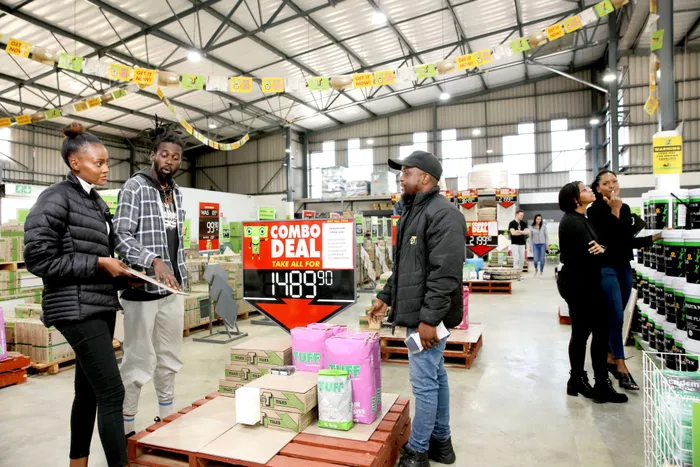Italtile pays out special dividend despite industry over-capacity and weak consumer buying power

Italtile’s TopT’s “Every price a low price” positioning resonated with cash-strapped consumers, building on its reputation as an affordable tile specialist offering a complete home-finishing basket. Despite increased competition, TopT gained market share and grew sales and margins in the past year. Picture: Supplied
Italtile shareholders will receive a special dividend of 78 cents a share, which will bring the tile, bathroom, and other home-ware manufacturer, distributor and retailers’ full payout to 127 cents a share for the year to June 30, a whopping 140% higher than the year before.
The payout to shareholders was even though the financial performance for the year was slightly below the previous year, with turnover flat at R11.5 billion, trading profit 11% lower at R2.1bn, while headline earnings per share fell by 7% to 123 cents per share.
CEO Lance Foxcroft said in an interview the board had opted to pay the special dividend as the group was strongly cash generative; cash reserves of R1.84bn were in excess of operational requirements, capital expenditure commitments were lower, and the group had also spent some R200 million in share buybacks. The ordinary dividend was 49 cents (53 cents in 2023).
Foxcroft said there were significant changes in the competitive landscape in both the tile retail and manufacturing industries, where numerous new competitors had emerged, aggravated by weak consumer demand. Italtile’s 208 retail store brands are CTM, Italtile Retail, and TopT, and including six online web stores.
He said Southern African tile manufacturing production capacity far exceeded demand, and SADC manufacturers were resorting to predatory pricing in South Africa in a bid to penetrate the market. Prices persistently fell over the year, but he expected there would be consolidation among players and rationalisation of capacity in the market.
A highlight in the period had been the commissioning of Ezee Tile’s new flagship facility at Vulcania, and although it was not a good market to be launching new capacity, the factory would “add strings to our bow” in terms of quality, technology, and fashion. Foxcroft said they would also investigate whether import trade protection mechanisms might be necessary from the government.
He said they were focusing on being more efficient at every customer touchpoint: fashion, range, price, service and quality. “In our goal to remain industry leaders, we will continue to unlock and extract value from within our business through our drive for efficiencies and cost leadership.”
Foxcroft said they expect a slight improvement in consumer disposable income in the new year, which should result in an increase in sales at retail level. However, the overall environment for the group was expected to remain extremely challenging in the short term.
The group was mildly optimistic about prospects for growth. “South Africa is under-housed and the dynamics of the housing market are favourable: a young, growing, upwardly mobile demographic with a strong culture of owning a home,” he said.
“An interest rate cut in the current calendar year should further boost disposable income and confidence, while implementation of the two-pot retirement system in September may provide an injection of cash into the economy,” he said.
Foxcroft said in the past year the retail operation’s full-year results were slightly lower than the prior comparable year, but it recovered market share and performed better in the second half.
In the manufacturing division, Ceramic saw improvements in manpower, systems, quality and product range, but the business failed to grow tile volumes and improve capacity utilisation required to reduce the cost base and improve profitability.
Due to remedial measures at Ceramic, the decline in its poor interim performance, however, was slowed – although not reversed. He expected this division to remain under pressure in the short term.
BUSINESS REPORT
Related Topics: